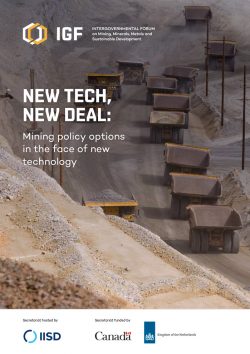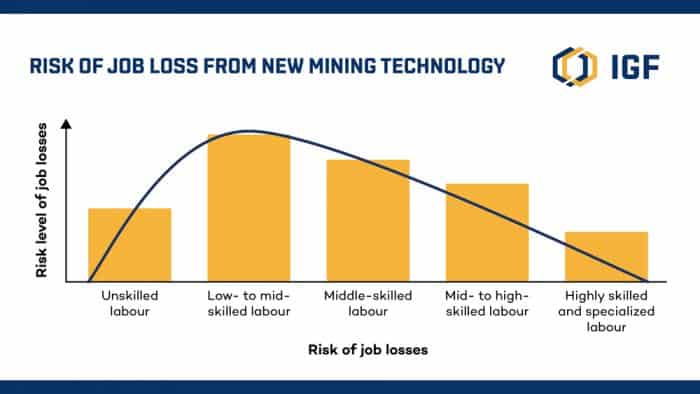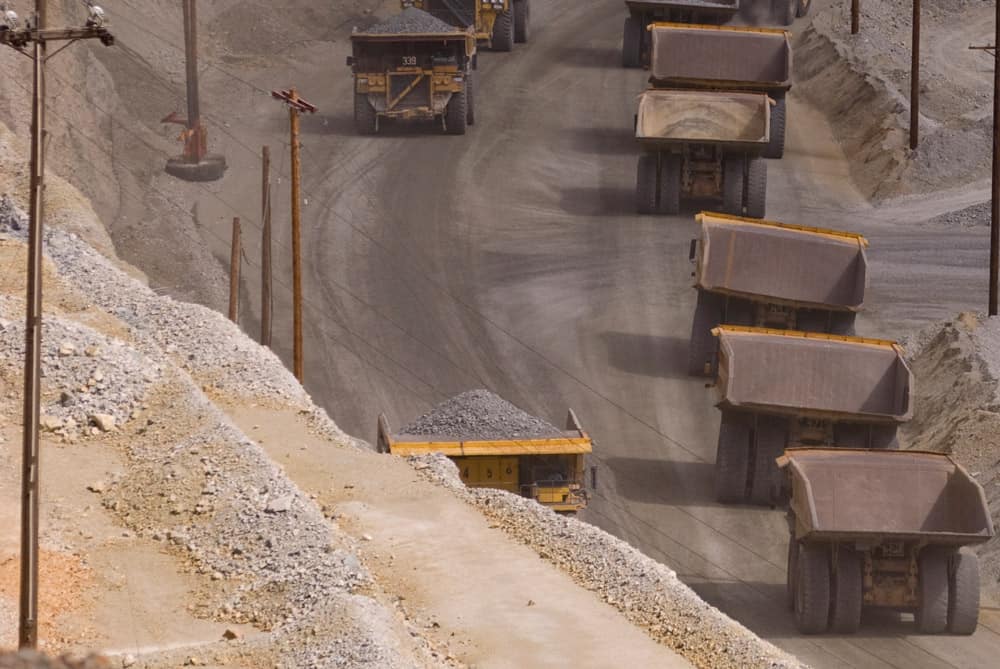 How will new mining technologies affect communities, governments, and operators? And how should policy-makers respond to promote sustainable development through mining in the future?
How will new mining technologies affect communities, governments, and operators? And how should policy-makers respond to promote sustainable development through mining in the future?
To answer these important questions, the Intergovernmental Forum on Mining, Minerals, Metals and Sustainable Development (IGF) has published a new report: New Tech, New Deal: Mining Policy Options in the Face of New Technology.
“In recent years, we’ve seen an acceleration of investment in disruptive technologies in the large-scale mining sector,” said Isabelle Ramdoo, the report’s co-author and Deputy Director of the IGF. “These technologies will alter the traditional relationships between mining companies, communities, and governments.”
While technological evolution is nothing new in mining, the coming wave of changes—incorporating digitization, big data, automation, ubiquitous sensors, machine learning, artificial intelligence, and more—is faster and stronger than anything ever seen before.
Labour is one area where the report authors anticipate major impacts as new technologies will mean fewer jobs overall but also provide for new, high-paying positions. Skills training programs may be part of the answer to equip local workers to fill these new mining roles and support the industry’s social licence to operate. “In many ways, mining jobs are seen as payment from operators to local communities,” said Ramdoo.

According to the report, new technologies may bring increased productivity to mine operators, while key variables will determine how these changes play out for women in mining and the artisanal and small-scale mining sector. In addition, some new technologies may provide for benefits extending beyond the mining sector.
The report also examines how new technologies will affect supply chains and local procurement as well as taxation and government revenue from the sector.
“If new technologies reduce the flow of benefits from mining operations to local communities and governments, good policies can go a long way to rebalance the traditional deal between these important stakeholders and large-scale mining companies.”
The authors outline four broad categories for “new deal” mining policies that should:
- Ensure any new jobs are contestable by locals
- Use mining to drive economic diversification outside the mining sector
- Rethink tax mechanisms to account for the new realities
- Find solutions in the new technologies themselves
Download the full report (English) or executive summary in English, French, or Spanish.
For more information, please contact David Perri, Senior Communications Officer for the IGF at dperri@iisd.ca.
The New Tech, New Deal project is supported by Deutsche Gesellschaft für Internationale Zusammenarbeit (GIZ) on behalf of the German Federal Ministry of Economic Cooperation and Development (BMZ). The project is a partnership between the IGF and the Columbia Center on Sustainable Investment (CCSI) and Mining Shared Value/Engineers Without Borders Canada.
The IGF supports more than 75 member nations committed to leveraging mining for sustainable development to ensure negative impacts are limited and financial benefits are shared. It is devoted to optimizing the benefits of mining to achieve poverty reduction, inclusive growth, social development, and environmental stewardship. The International Institute for Sustainable Development has served as Secretariat for the IGF since October 2015. Core funding is provided by the governments of Canada and the Netherlands.

